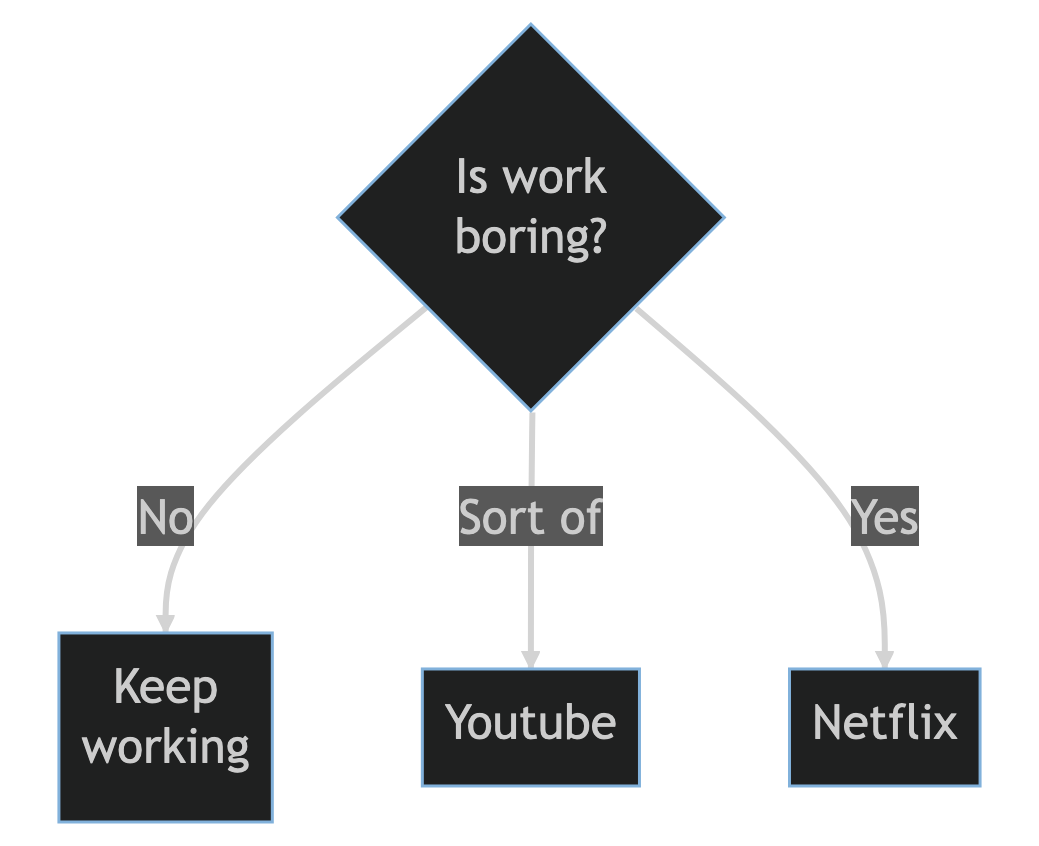How Hidden Expectations Caused Stewie to Procrastinate

This is part of my How to Stop Procrastinating series.
Hey, friends!
I work as a computer programmer, and parts of my job are tedious. Like when I make small changes to the code and wait 90 seconds for my tests to run. After doing this 100 times, I’m ready to pull my (remaining) hair out.
Ideally, I’d be proactive and complete the hardest task first. (I call this doing the “worst first.") This would make me an effective employee, advance my career, and yada yada yada.
But for the longest time, I didn’t. For the longest time, I procrastinated.
Why did Stewie procrastinate?
Because deep down, I crave novelty.
My little brain wants everything to be exciting and entertaining and exhilarating. And I used to have this totally unreasonable expectation that all work should be interesting. If I ever felt a teensy-bit bored, alarm bells would sound telling me something was very wrong.
This expectation might be summarized as: I shouldn’t have to do boring things. All work should be exciting.
This expectation caused countless problems, but for the longest time, I wasn’t consciously aware of it. This hidden expectation lurked deep in my subconscious, driving me to procrastinate (and feel bad afterward). It whispered that boring tasks were akin to torture, and I foolishly believed this lie.
How did Stewie solve this?
With daily introspection.
I spend ten minutes thinking about my day and ask:
- When did I procrastinate?
- What’s one hidden expectation?
My goal is to identify one hidden expectation. Just one.
The most common hidden expectation, the one that wreaks the most havoc, is: I shouldn’t have to do boring things. All work should be exciting.
Once I saw this hidden expectation, once I was consciously aware of it, I could reason about it. The rational part of my brain knew this was completely unreasonable. All work has boring bits and tedious tasks.
My rational mind also reminded me of Kant’s Categorical Imperative and asked, “What if everyone avoided boring work?”
What if everyone repairing our roads skipped mundane tasks? What if every sanitation worker only did the exhilarating parts of their job? Nothing would get done! No Amazon packages would be delivered. And society would collapse.
False beliefs
The idea that “all work should be exciting” is a false belief I had about the world. And daily introspection made me conscious of it. Each time I became aware of this false belief, it lost some of its power. Gradually, I came to terms with the need to do boring work. I don't have to like it, but I must tolerate it.
But that’s me.
What about you? What hidden expectations are driving your procrastination?
Read more on How to Stop Procrastinating.
Thanks to Brynn Stewart, Diane Callahan, and Thomas Weigel for reading a draft of this!

